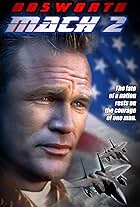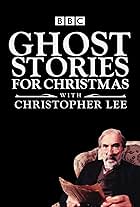carol_laidlaw
Joined Jan 2016
Welcome to the new profile
We're still working on updating some profile features. To see the badges, ratings breakdowns, and polls for this profile, please go to the previous version.
Ratings29
carol_laidlaw's rating
Reviews23
carol_laidlaw's rating
I don't what the reviewers who have given this film very low scores thought they were watching. It's an average film to be sure but it's entertaining enough to be worth the time spent watching it. I like that the action is live and not CGI produced, to me CGI always looks too obvious and so isn't interesting. The film starts with an action sequence with furious fight scenes, where it has to be admitted that in the shoot out the two protagonists do expend an implausible amount of ammunition without managing to shoot each other, or anybody else for that matter. But how often have we seen that in action scenes? This first sequence introduces the lead character and his potentially fatal flaw: he's a US Air Force Officer who hates heights and can't fly a plane.
The plot has a few over-used elements: a convoluted government conspiracy which can only be plausible to dedicated conspiracy theorists, terrorists who are not who they seem, and a plane piloted by a person who doesn't know how to fly and has to be told how to land it. I'm sure I've seen that ending in two other films.
But the film's quality is lifted by the good acting of the whole cast. Apart from the most cheesy lines they make the dialogue plausible and the scenes watchable, and they are relatable as characters.
The plot has a few over-used elements: a convoluted government conspiracy which can only be plausible to dedicated conspiracy theorists, terrorists who are not who they seem, and a plane piloted by a person who doesn't know how to fly and has to be told how to land it. I'm sure I've seen that ending in two other films.
But the film's quality is lifted by the good acting of the whole cast. Apart from the most cheesy lines they make the dialogue plausible and the scenes watchable, and they are relatable as characters.
I was eight years old in 1972, too young to be aware of current events, so I didn't know about the Israeli athletes being kidnapped and murdered at the Munich Olympics until years later, from reading about it and from watching a documentary (One Day In September.)
This film is about how ABC news's sports reporting team had to suddenly change their working style and become news reporters to report effectively on the hostage situation as it developed. It starts off slowly but the pace picks up when somebody hears shots in the Olympic Village and tries to find out what is happening. From there on the story unfolds as though it was in real time. The tension keeps building. In spite of mostly taking place inside a single room and having little physical action, this film holds the attention all the way through and although most of the audience will know how the situation ended, the tragic conclusion is still shocking. At the end, the audience in the cinema where I saw this were pin-drop silent.
What makes it so gripping is that it is filmed as though the journalists were following the situation as it happened, having no idea what would happen next or how it would end. They hit obstacles at intervals and have to be resourceful within the (relatively) unsophisticated technology of the time in order to keep broadcasting the story. An additional pressure on them is that they are broadcasting live; no scope for editing the images before they are broadcast. That leads to several ethical issues, about what they can legitimately show on live television.
The acting from the ensemble cast is good and the script tightly written. The film also cleverly blends actual footage from the event with current footage, which perfectly evokes the era. Don't look for any information about the geopolitics of the event, the film doesn't touch on it. It isn't that kind of film. It is about the ethical questions involved in informing the public of events in the world while avoiding doing harm or acting in bad taste. It occurs to me that this film itself touches on journalistic ethics. It uses a real historic murder, which had far reaching consequences for Israeli-Palestinian relations, as a basis for entertainment.
What makes it so gripping is that it is filmed as though the journalists were following the situation as it happened, having no idea what would happen next or how it would end. They hit obstacles at intervals and have to be resourceful within the (relatively) unsophisticated technology of the time in order to keep broadcasting the story. An additional pressure on them is that they are broadcasting live; no scope for editing the images before they are broadcast. That leads to several ethical issues, about what they can legitimately show on live television.
The acting from the ensemble cast is good and the script tightly written. The film also cleverly blends actual footage from the event with current footage, which perfectly evokes the era. Don't look for any information about the geopolitics of the event, the film doesn't touch on it. It isn't that kind of film. It is about the ethical questions involved in informing the public of events in the world while avoiding doing harm or acting in bad taste. It occurs to me that this film itself touches on journalistic ethics. It uses a real historic murder, which had far reaching consequences for Israeli-Palestinian relations, as a basis for entertainment.
A number of people who have reviewed this film have a personal connection to the subject matter. I have to confess to having one myself. I once worked at Oldham hospital and every week I passed the plaque that commemorates Louise Brown, the first IVF baby, being born there. Since this film is only being shown at a handful of cinemas I took out a subscription to Netflix in order to be able to see it.
Would this be an interesting film for people without a personal connection? I have to say not really. One shortcoming is that it packs in a lot of different threads without properly developing any of them. It includes the right of women to exercise choice over having a family, the pain of infertility, social expectations on women to become mothers, the ethics of scientific research and how science is used, prejudice against women, fear of social change, ignorance about scientific developments, the tabloid press encouraging bigotry, religious conservatism. These threads are introduced but not followed up. Snippets of the science behind IVF are put into the characters' words but there is no explanation of why it took 10 years to produce the first IVF birth. There is no attempt to explain the savage prejudice against IVF research. Even allowing that attitudes would have been different in the 1970s, when this film is set, the prejudice is difficult to understand. The social and personal effects of infertility are not explored. This film would have been much better if it had focused on just one or two themes.
This would not matter so much if the characters were relatable. But there is a near total absence of characterisation. There is no attempt to develop any of the main characters, except that of Jean Purdy, who up to now has been left out of the history of IVF. She is presented as being dedicated to researching a cure for infertility because she was herself infertile and wanted to help other women in the same situation. But she is still not convincingly developed as a character.
The minor characters, the women who volunteered for IVF treatment, are barely introduced, as is the family of Louise Brown. A good story pays attention to its characters, what they do and why. This film does none of that. Without well rounded and relatable characters it is flat. It is not unwatchable but it is not the right approach to telling the story of IVF.
Would this be an interesting film for people without a personal connection? I have to say not really. One shortcoming is that it packs in a lot of different threads without properly developing any of them. It includes the right of women to exercise choice over having a family, the pain of infertility, social expectations on women to become mothers, the ethics of scientific research and how science is used, prejudice against women, fear of social change, ignorance about scientific developments, the tabloid press encouraging bigotry, religious conservatism. These threads are introduced but not followed up. Snippets of the science behind IVF are put into the characters' words but there is no explanation of why it took 10 years to produce the first IVF birth. There is no attempt to explain the savage prejudice against IVF research. Even allowing that attitudes would have been different in the 1970s, when this film is set, the prejudice is difficult to understand. The social and personal effects of infertility are not explored. This film would have been much better if it had focused on just one or two themes.
This would not matter so much if the characters were relatable. But there is a near total absence of characterisation. There is no attempt to develop any of the main characters, except that of Jean Purdy, who up to now has been left out of the history of IVF. She is presented as being dedicated to researching a cure for infertility because she was herself infertile and wanted to help other women in the same situation. But she is still not convincingly developed as a character.
The minor characters, the women who volunteered for IVF treatment, are barely introduced, as is the family of Louise Brown. A good story pays attention to its characters, what they do and why. This film does none of that. Without well rounded and relatable characters it is flat. It is not unwatchable but it is not the right approach to telling the story of IVF.



















